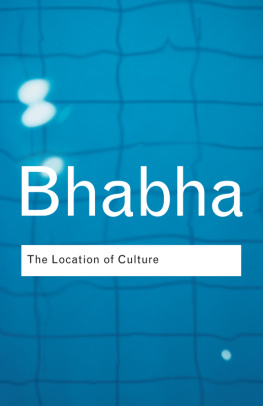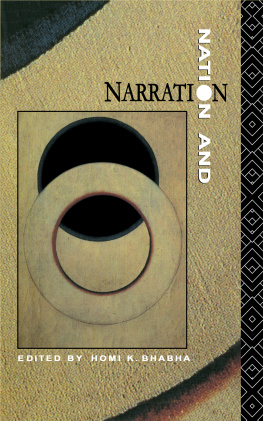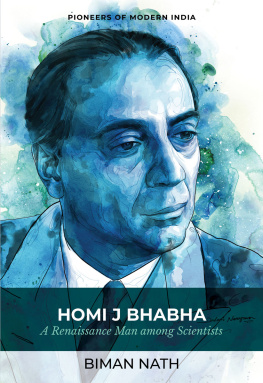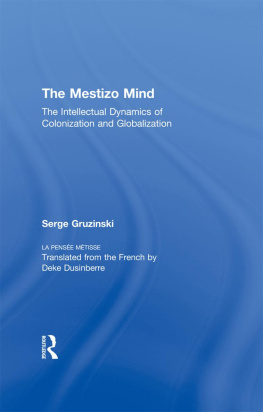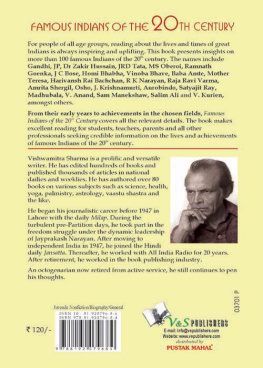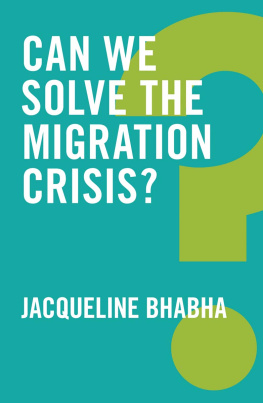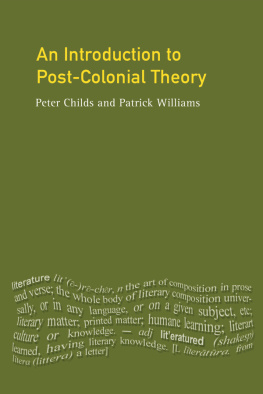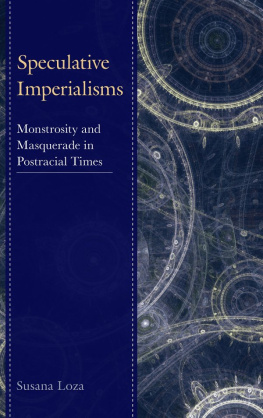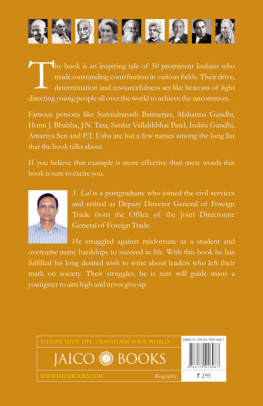Homi K. Bhabha - The Location of Culture
Here you can read online Homi K. Bhabha - The Location of Culture full text of the book (entire story) in english for free. Download pdf and epub, get meaning, cover and reviews about this ebook. year: 2004, publisher: Taylor and Francis, genre: Romance novel. Description of the work, (preface) as well as reviews are available. Best literature library LitArk.com created for fans of good reading and offers a wide selection of genres:
Romance novel
Science fiction
Adventure
Detective
Science
History
Home and family
Prose
Art
Politics
Computer
Non-fiction
Religion
Business
Children
Humor
Choose a favorite category and find really read worthwhile books. Enjoy immersion in the world of imagination, feel the emotions of the characters or learn something new for yourself, make an fascinating discovery.
- Book:The Location of Culture
- Author:
- Publisher:Taylor and Francis
- Genre:
- Year:2004
- Rating:5 / 5
- Favourites:Add to favourites
- Your mark:
- 100
- 1
- 2
- 3
- 4
- 5
The Location of Culture: summary, description and annotation
We offer to read an annotation, description, summary or preface (depends on what the author of the book "The Location of Culture" wrote himself). If you haven't found the necessary information about the book — write in the comments, we will try to find it.
The Location of Culture — read online for free the complete book (whole text) full work
Below is the text of the book, divided by pages. System saving the place of the last page read, allows you to conveniently read the book "The Location of Culture" online for free, without having to search again every time where you left off. Put a bookmark, and you can go to the page where you finished reading at any time.
Font size:
Interval:
Bookmark:
The work being done in my field, African and African-American Studies, is unimaginably richer because of Homi Bhabhas stunning contribution to literary, historical, and cultural studies. The breadth and depth of his analysis, and the razor precision of his writing, push us all to be better, more innovative scholars, and I thank him for it.
Henry Louis Gates, JR
The Location of Culture has been extraordinarily fertile for work in a variety of fields: literature, geography, architecture, politics among them. Homi Bhabha is at once radical and subtle in his method of argument and his insights have been fundamental to the flourishing of post-colonial studies.
Gillian Beer, University of Cambridge
The Location of Culture is an exuberantly intelligent voyage of discovery and disorientation. Supple, subtle, and unafraid, its power lies in its remarkable openness to all that is challenging and unsettling in the contemporary world.
Stephen Greenblatt, Harvard University
Bhabha is that rare thing, a reader of enormous subtlety and wit, a theorist of uncommon power. His work is a landmark in the exchange between ages, genres and cultures; the colonial, post-colonial, modernist and postmodern.
Edward Said
Homi Bhabha is one of that small group occupying the front ranks of literary and cultural theoretical thought. Any serious discussion of post-colonial/postmodern scholarship is inconceivable without referencing Mr Bhabha.
Toni Morrison

Routledge Classics contains the very best of Routledge publishing over the past century or so, books that have, by popular consent, become established as classics in their field. Drawing on a fantastic heritage of innovative writing published by Routledge and its associated imprints, this series makes available in attractive, affordable form some of the most important works of modern times.
For a complete list of titles visit
www.routledgeclassics.com
With a new preface by the author

First published 1994 by Routledge
First published in Routledge Classics 2004
by Routledge
2 Park Square, Milton Park, Abingdon, Oxon, OX14 4RN
711 Third Avenue, New York, NY 10017
Routledge is an imprint of the Taylor & Francis Group, an informa business
1994 Homi K. Bhabha
All rights reserved. No part of this book may be reprinted or reproduced or
utilised in any form or by any electronic, mechanical, or other means, now
known or hereafter invented, including photocopying and recording, or in
any information storage or retrieval system, without permission in writing
from the publishers.
British Library Cataloguing in Publication Data
A catalogue record for this book is available from the British Library
Library of Congress Cataloging in Publication Data
A catalog record for this book has been requested
ISBN10: 0-415-33639-2
ISBN13: 978-0-415-33639-0
For Naju and Kharshedji Bhabha
C ONTENTS
Looking Back, Moving Forward: Notes on Vernacular Cosmopolitanism
I was not one of midnights children.Empire: the postcolonial drive towards the new horizons of a Third World of free nations, the Bandung spirit, embroiled, at times, with a desire for the wayward modernist art and literature of Europe that was so much a part of the world of the westernized Indian bourgeoisie. Growing up in Bombay as a middle-class Parsi a member of a small Zoroastrian-Persian minority in a predominantly Hindu and Muslim context I never imagined that I would live elsewhere. Years later, I ask myself what it would be like to live without the unresolved tensions between cultures and countries that have become the narrative of my life, and the defining characteristic of my work.
Setting out from Bombay in the 1970s to study English at Oxford was, in many ways, the culmination of an Indian middle class trajectory where formal education and high culture colluded in emulating the canons of elite English taste (or what we knew of it) and conforming to its customs and comforts. My everyday life, however, provided quite a different inheritance. It was lived in that rich cultural mix of languages and lifestyles that most cosmopolitan Indian cities celebrate and perpetuate in their vernacular existence Bombay Hindustani, Parsi Gujarati, mongrel Marathi, all held in a suspension of Welsh-missionary-accented English peppered with an Anglo-Indian patois that was sometimes cast aside for American slang picked up from the movies or popular music.
Learning to work with the contradictory strains of languages lived, and languages learned, has the potential for a remarkable critical and creative impulse. At times, the English language had the archaic feel of a carved almirah that engulfed you in the faded smell of moth-balls and beautiful brittle linens; at other times it had the mix-and-match quality of a moveable feast, like Bombay street food, spicy, cheap, available in all kinds of quantities and combinations, subtle delicacies with a street-wise savour. I went to Oxford to embellish the antique charms of the armoire; I ended up realizing how much I desired street food. Why was I intellectually fascinated but unmoved, when I found myself at the academic acme of the literary culture that I had chosen to follow?
Fumbling towards an answer to that question brings me closer to the critical lesson that I was to learn in my early years as an apprentice academic working in the West. It was this: what one expects to find at the very center of life or literature the summation of a Great Tradition, a touchstone of Taste may only be the dream of the deprived, or the illusion of the powerless. The canonical center may, indeed, be most interesting for its elusiveness, most compelling as an enigma of authority. What was missing from the traditionalist world of English literary study, as I encountered it, was a rich and paradoxical engagement with the pertinence of what lay in an oblique or alien relation to the forces of centering. Writers who were off-center; literary texts that had been passed by; themes and topics that had lain dormant or unread in great works of literature these were the angles of vision and visibility that enchanted me.
I do not mean, in any sense, to glorify margins and peripheries. However, I do want to make graphic what it means to survive, to produce, to labor and to create, within a world-system whose major economic impulses and cultural investments are pointed in a direction away from you, your country or your people. Such neglect can be a deeply negating experience, oppressive and exclusionary, and it spurs you to resist the polarities of power and prejudice, to reach beyond and behind the inviduous narratives of center and periphery. Remember the awful realization endured by Rahul Singh, V. S. Naipauls central character in his novel The Mimic Men, when it begins to dawn on him that the great stone walls of London dont contain a unique weight and an unsurpassable resonance; they are like stones elsewhere and everywhere; other stones are not pale shadows of them. What he had earlier dismissed as the insignificant stones and shells of his small postcolonial island of Isabella suddenly, belatedly, develop their own historical presence.
Font size:
Interval:
Bookmark:
Similar books «The Location of Culture»
Look at similar books to The Location of Culture. We have selected literature similar in name and meaning in the hope of providing readers with more options to find new, interesting, not yet read works.
Discussion, reviews of the book The Location of Culture and just readers' own opinions. Leave your comments, write what you think about the work, its meaning or the main characters. Specify what exactly you liked and what you didn't like, and why you think so.

